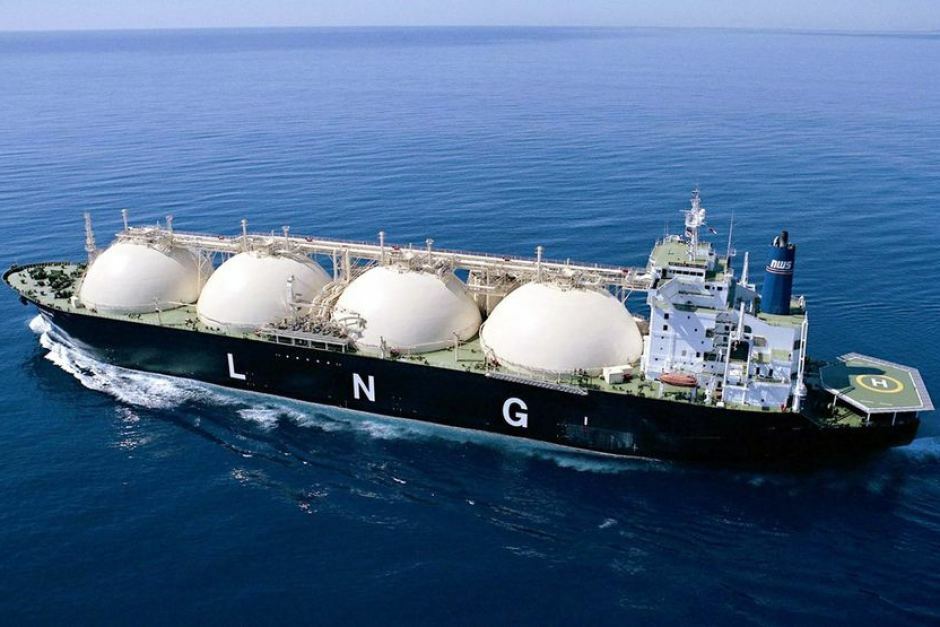
Qatar still has a lot of LNG capacity to sell
By Rhod Mackenzie
Europe may have found a previously an unforeseen solution to the challenge facing it of providing the continent with liquefied natural gas (LNG) and it has appeared in the form of Qatar. It has been reported that Doha still requires customers for two-thirds of its LNG supply, which follows an extensive expansion project in the emirate's gas sector.
Qatar has secured two lengthy agreements for LNG provision with collaborators in their expansion scheme: French energy conglomerate TotalEnergies SE and Chinese Sinopec. However, in comparison to the other participants within the expansion project, such as Shell Plc, Exxon Mobil Corp., and Eni SpA, no information has been provided yet.
After the 24th of February 2022, long-term LNG supply agreements favoured by Qatar, who are competing with the US for the title of the planet's leading LNG supplier, became more appealing in Europe. Europe has had to re-evaluate its priorities by prioritising energy security over transitioning from fossil fuels to renewable energy sources. Last week, TotalEnergies and Doha announced the signing of a 27-year contract, ensuring that France will continue to use at least one type of fossil fuel after 2050.
"There is still a significant amount of liquefied gas to sell, but there is progress," states Anne-Sophia Corbeau of the Center on Global Energy Policy at Columbia University in New York.
As we recall, Qatar intends to elevate liquefied gas production to 126 million tonnes by 2027, which constitutes an increas of nearly two-thirds (64%). High gas price volatility is also increasing the attractiveness of long-term contracts, although some buyers prefer the flexibility of terms offered by Qatar from US LNG producers. The latter played an important role in supplying Europe with fuel last year after it abandoned Russian piped gas.
Currently, Qatar has contracted around a third of the new volume of gas, equivalent to approximately 40 million tons. Agreements with Chinese, German, Bangladeshi and French companies have been announced for 15.3 million tons. However, the expansion project for the North East field will contribute an additional 32 million tonnes annually, while the North South field will add another 16 million tonnes.
Foreign energy firms involved in the two-phased expansion will receive 12 million tonnes of liquefied gas annually. QatarEnergy (QE) owns a 75% share in both phases of the venture. In addition to QE, shareholders of the North East Field expansion project also include Shell, TotalEnergies SE, ConocoPhillips, Eni and Exxon Mobil. Shell, TotalEnergies, and ConocoPhillips also have interests in the North South expansion project.
Qatar has reserved regasification capacity in the United Kingdom, France, and Belgium until 2050. Doha owns stakes in LNG terminals in Belgium and France, as well as in LNG infrastructure in Italy and the United Kingdom. QE requires LNG receiving terminals for gas from the Golden Pass project in America and created a dedicated trading division to handle these tasks three years ago.
In addition, QE is marketing again LNG volumes from contracts approaching expiration dates. The contracts, mainly with European companies, expire in 2028, amounting to roughly 13 million tons of gas per year.
Anne-Sophia Corbeau states that the primary question is whether these contracts will end or be extended.
Meanwhile, there is increasing competition between buyers of liquefied gas. According to BMI Research, American liquefied natural gas producers currently own 43% of the liquefied gas market in Europe, while Qatar holds 16%.
BMI also notes in a research report that Qatar faces significant challenges when it comes to increasing its market share in Europe due to US producers, who are keen to sign long-term supply contracts with importers seeking to reduce their dependency on Russian gas.
